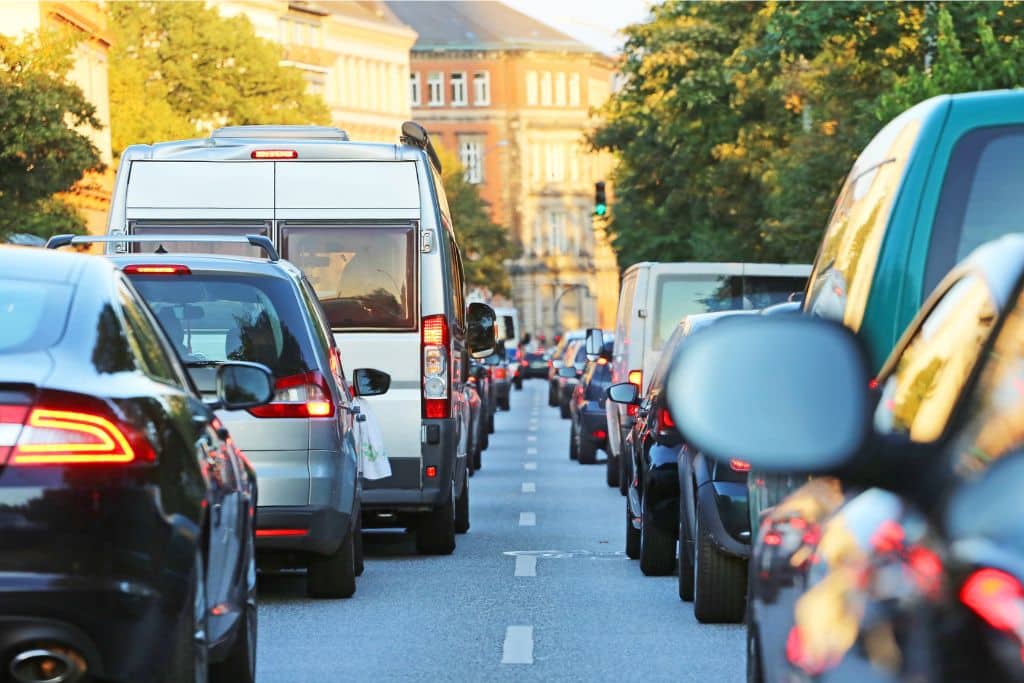The final approval of the ban on CO2-emitting cars by 2035 was delayed by last-minute opposition from Germany, Italy, and other Eastern European countries. The EU now eyes banning fossil fuel vehicles completely by mid-century.
—
After weeks of delay caused by last-minute opposition from some member countries and conservative MEPs, the European Union gave the final approval on Tuesday to a landmark law banning the sale of new CO2-emitting cars by 2035.
Approved by EU countries’ energy ministers after the European Council and European Parliament voted in favour of the ban last October, the new legislation’s intermediary goal sees a 55% reduction in CO2 emissions for new cars and 50% for new vans by 2030 compared to 2021 levels. By 2035, all sales of new combustion engine cars will be prohibited, resulting in a 100% cut in emissions.
On Saturday, Timmermans confirmed that the EU agreed to propose a legal route to exempt e-fuel-powered vehicles after Brussels and Berlin reached a deal on the future use of combustion engines. In recent weeks, Germany had formed an alliance with Italy and additional territories in Eastern Europe in opposing the Commission’s legislation and asking to exempt vehicles propelled entirely by carbon-neutral e-fuels from the 2035 phaseout.
E-fuels, though not yet produced at scale, are considered carbon neutral because they are made using captured CO2 emissions, balancing out the carbon dioxide released when the fuel is combusted in an engine.
Germany’s transport minister Volker Wissing welcomed the deal, saying the new agreement would “open up important options for the population towards climate-neutral and affordable mobility.”
Environmental groups, however, strongly criticised the exemption for e-fuels, warning about the risk of a loophole as engines designed for e-fuels could also run on traditional ones. In an interview with Euronews, policy officer at Transport & Environment (T&E) Carlo Tritto said that e-fuel production is “very inefficient” and can require “up to five times more energy with respect to electric vehicles.”
The European Parliament and Council reached another agreement on Tuesday to boost the number of publicly accessible electric recharging and hydrogen refuelling stations across the 27-bloc’s main transport corridors and hubs, facilitating the transition to a carbon-neutral transportation sector.
“Zero-emission mobility has to be supported by the right infrastructure, ready for you when you need it, where you need it,” said European Commission’s vice-president Frans Timmermans on Twitter.
”Every driver in Europe should be certain that they can travel in confidence throughout the continent. This agreement makes it possible.”
The transportation sector accounts for about one-quarter of the EU’s total greenhouse gas emissions and almost two-thirds of oil used in the bloc, according to the European Environment Agency (EEA). This is also the only sector to have experienced a rise in emissions in the past 30 years, nearly 33.5% between 1990 and 2019.
The landmark legislation marks yet another step forward in adopting the ‘Fit for 55’ legislative proposal advanced by the Commission last year – the EU’s plan for green transition that aims to bring legislation in line with the 55% reduction goal by 2030 compared to 1990 levels.
You might also like: EU Proposes New Criteria Against Greenwashing and Misleading Environmental Claims


















